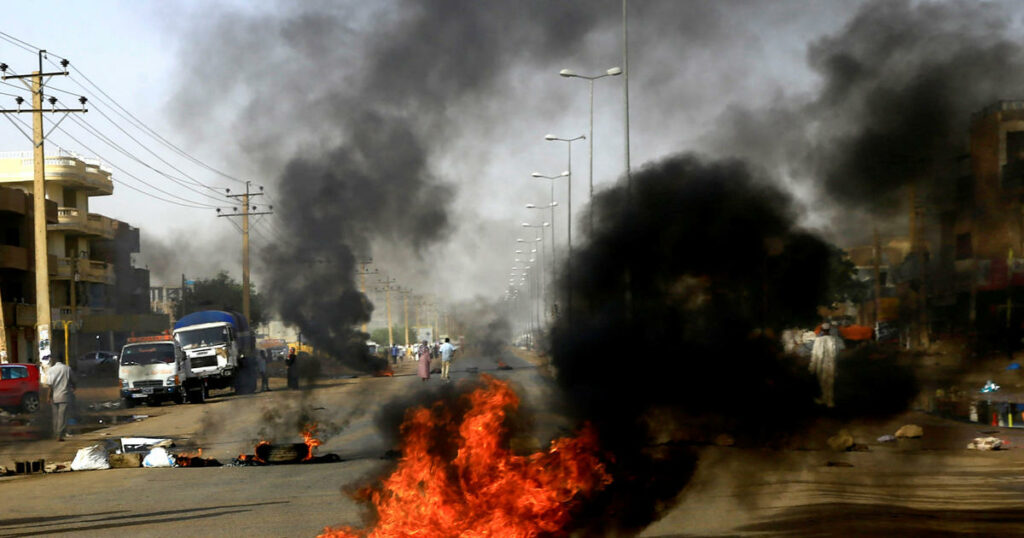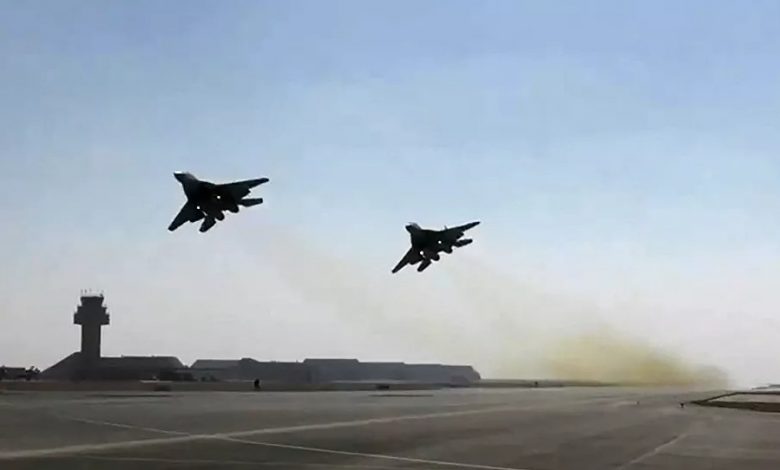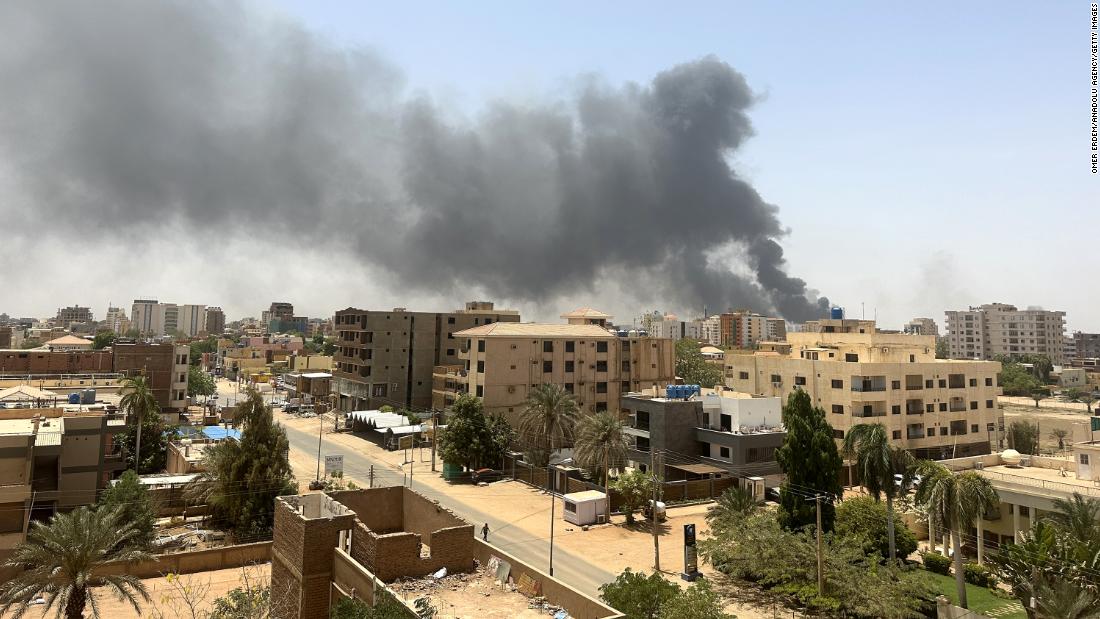Friction between the army and the RSF paramilitary group was exacerbated by Sudan’s political process, analysts say.
Sudan woke up to heavy clashes between the army and a powerful paramilitary force known as the Rapid Support Forces on Saturday. The two rivals have long competed for relevance and power, but an internationally backed political process launched last year exacerbated tensions between them, analysts and activists say.
Civilians in the capital of Khartoum reported seeing armored vehicles from both forces roaming the streets while hearing heavy gunfire in multiple urban quarters.
The RSF said it has taken control of the presidential palace and Khartoum International Airport, which could not be confirmed. The group also said it has seized Merowe Airport, which houses Sudanese and Egyptian fighter planes. Sudan’s army chief General Abdel Fattah Al-Burhan denied the RSF’s claims.
reporters were not able to verify the claims and the situation on the ground remained unclear. Witnesses sighted fighter planes in the air, presumably from the army since the RSF does not have an aerial arsenal.
“Planes are literally flying over our house. We can hear shooting everywhere,” Dania Atabani, a Sudanese activist, told reporters from Khartoum.
A doctors’ group said at least three civilians were killed as the fighting escalated, including two at the Khartoum airport and one in North Kordofan state.
Not long ago, the RSF and the military cooperated to derail Sudan’s transition to democracy by spearheading a coup on October 25, 2021. The move triggered a year of anti-coup protests and international pressure, prompting both forces to sign the Framework Agreement on December 5.

That settlement ushered in a new political process that promised to address key issues before a final deal that would restore a civilian administration tasked with steering the country to elections in two years.
Security sector reform was the most vital and challenging issue to sort out in order to rein in the security forces. But the process was rushed and ad hoc, with the international community hoping to wrap it up in merely days or weeks in order to celebrate the signing of a new agreement, according to four diplomats that were not authorized to comment.
As a result, the political process accelerated a confrontation between the RSF and army.
“The Framework Agreement … brought to the fore key existential issues for both forces and their leaderships, such as [RSF] integration into a single army, military divestment from lucrative sectors of the economy and the prospect of [soldiers] facing justice for past abuses,” Jonas Horner, an independent consultant.
“Most of all … the two forces feared being left weaker than the other.”

Source of tensions
The RSF evolved from Arab armed groups that have been accused of carrying out massacres in Darfur in the early 2000s, according to global rights groups including Human Rights Watch and Amnesty International.
It was created in 2013 by former President Omar al-Bashir, who placed the group directly under his command and tasked it with protecting his rule from top army generals and his feared intelligence service.
The plan did not work. In April 2019, both the army and RSF turned against al-Bashir following months of pro-democracy protests. The RSF continued to operate independently from the army, while the two forces competed for state assets, foreign patrons, legitimacy and recruits.
Even after the two forces overthrew Sudan’s civilian administration in October 2021, experts and activists warned that the interests of both forces would diverge in the medium to long term.
“Both the army and RSF had a marriage of convenience, but they continued to ignore the issue of RSF integration into the army,” Hamid Murtada, a Sudanese analyst and advocate of the street pro-democracy movement, told reporters a day before clashes broke out.
“Despite my reservations of the political process and Framework Agreement, it showed us that the question [of security sector reform] had to be asked and it brought all these tensions to the surface,” he added.
There are also indications that Bashir-era loyalists in the army – tied to the Islamic movement in Sudan – feared that a new political agreement would significantly harm their economic and political power.
Many of these loyalists blame Hemeti for turning on al-Bashir in 2019.
To thwart them, the RSF repositioned itself as a cooperative partner for pro-democracy politicians in exchange for maintaining its relevance and power.
As a result, the RSF pushed top army commander Abdel Fattah al-Burhan to sign a new deal in hopes of acquiring more legitimacy and support. But many suspect that al-Burhan was under pressure from his top brass not to sign.
Lack of urgency?
The violence appeared imminent when the RSF deployed to the northern city of Merowe two days ago, prompting a warning from the army that the RSF must retreat or else security could collapse in Sudan.
Diplomatic sources said that the Quad – the US, UK, UAE and Saudi Arabia – were most active in trying to mediate the dispute between the RSF and army in recent days.
The UN political mission in Sudan, known as UNITAMS, also made separate efforts, according to informed sources that were not authorized to speak on record due to the sensitive nature of the talks.
“The international community should have read the situation much better and acted with more seriousness and urgency in the last days. The writing has been on the wall for so long,” said Nada Wanni, an independent researcher speaking to reporters from Khartoum.
“Efforts should’ve been more synergized and much more serious from everyone in order … to warn the two leaders of very serious consequences impacting them personally if they took this step.”
Now that fighting has erupted, many civilians fear that the two forces will embark on a protracted struggle at the expense of everyone else. RSF leader, Mohamad Hamdan “Hemeti” Dagalo, recently told international reporters that al-Burhan will either be brought to justice or die like a dog.
“Civilian protection should be the priority of every member of the international community right now,” Wanni stressed. “They need to exert every leverage and pressure they have over the leaders of these two camps to ensure they stop risking the lives of Sudanese civilians.”
Source: AL JAZEERA






